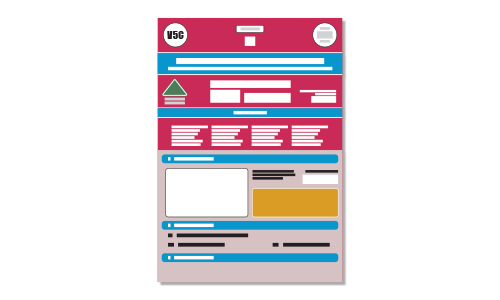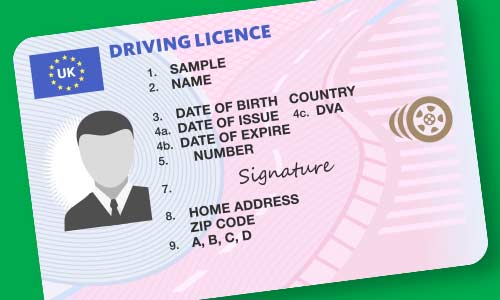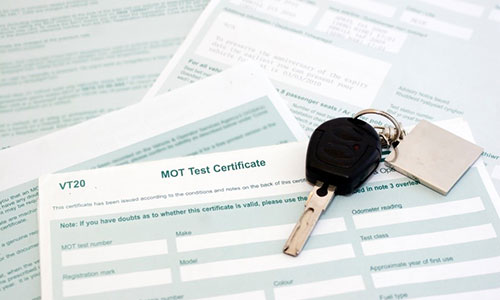
How to replace lost car documents
Last updated Feb 16th, 2024
As a motorist, you will accumulate many documents for your car, such as your driving licence, V5C logbook and insurance policy papers.
It’s always best to keep these documents stored in a safe place, just in case you need them at some point in the future. (For instance, when you decide to sell your car, knowing exactly where to find the documents you need to sell your car can make the process that much easier.)
Unfortunately, when you move to a new address (or your storage space becomes cluttered), it’s easy to lose or misplace car documents.
In this guide, we will cover how to replace key paperwork for your car. We’ll also explain the difficulties you may face if you are missing crucial documents – and why you should always keep your details up to date on your car documents.
Value your car in under 30 seconds
Replacing your V5C logbook
Your car’s V5C logbook contains pertinent information about the vehicle, such as its reg number, date of registration, manufacturer, model and engine size.
This document also provides details of the registered keeper (which is not necessarily the same person as the owner). Therefore, a V5C logbook is not considered proof of ownership.
However, the logbook is an important document for many buyers, as it includes details of the person who has taxed the car. If these details match up with the person selling the car, they’ll have reasonable reassurance that it hasn’t been stolen.
Whilst it is technically possible to sell your car without a V5C logbook, this can make the process more difficult, as many buyers will be deterred. You can also expect the car valuation for a motor with a missing V5C logbook to be reduced significantly. It’s also more difficult to tax your car without a V5C.
Fortunately, if you do lose this document, there are steps you can take to replace it. The process to follow will depend on whether you need to change any details concerning your name, address or the vehicle.
If all details are correct
- If all your details are correct, you can use the DVLA’s online duplicate logbook service to request a replacement copy. (This is the fastest way to apply.) Scroll down and click ‘Start now’ on the page to begin.
- From here, you’ll need to specify the circumstances which led to your V5C logbook being lost, damaged or destroyed.
- Next, you’ll need to provide the vehicle’s registration number, vehicle identification number (VIN) or chassis number and the registered keeper’s name and postcode referenced in the original logbook.
- Finally, you’ll have to pay the £25 replacement fee by credit or debit card.
How long does it take to replace your logbook?
Your new logbook will be sent to the registered keeper’s address that the DVLA has on record. You should receive it within five working days. If you still haven’t received your replacement after two weeks, you should contact the DVLA.
Applying for a replacement V5C logbook by phone
If you cannot access the internet, you can contact the DVLA by phone to apply for a replacement V5C logbook. You’ll need to provide the following information:
- Your car’s registration and VIN/chassis number.
- The name and postcode recorded in the original V5C logbook.
- Your credit or debit card details (to pay the £25 replacement fee).
You can only use this service if all your current V5C logbook details are correct. If you need to make any changes, you will need to apply for a replacement logbook by post.
If you request a replacement logbook over the phone, it may take up to four weeks to arrive. Therefore, we recommend applying online if possible.
Please note: If you have not received your logbook after four weeks, you should contact the DVLA. If you have not notified the DVLA after six weeks, you will have to pay a further £25 for a replacement.
If you need to change any V5C logbook details
You will need to apply for a replacement V5C logbook by post if you:
- Need to change your name, address or vehicle details.
- Didn’t receive a V5C logbook when you purchased the car (or within six weeks of registering it within the DVLA).
For a full explanation of the process to follow, please visit our guide ‘What is a V62 form?’

Replacing your driving licence
- If you’re ever stopped by the police whilst driving, you may be asked to produce a valid driving licence. This is why you should renew or update your driving licence promptly, and replace it if you ever lose it.
- If you suspect that your driving licence has been stolen, you should contact the police as a matter of priority. Stolen driving licences may be used to commit identity theft.
When applying for a replacement driving licence, you will need to provide the following information:
- Your driving licence number, national insurance (NI) number, passport number and your address(es) from the last three years.
To apply for a replacement driving licence:
- Visit the DVLA’s replacement licence portal and follow the steps detailed on the page.
- At the end of the process, you’ll have to pay the £20 driving licence replacement fee by credit or debit card.
Please note: If you do find your old licence after you’ve applied for or received a replacement copy, you must return it to the DVLA at the following address: DVLA, Swansea, SA99 1AB.
How long does it take to replace your driving licence?
After submitting your application, you should receive your replacement driving licence within 3 weeks. If you have not received your licence (or confirmation that it is on its way) after this time, you should contact the DVLA.

Replacing your MOT certificate
An annual MOT test is a legal requirement for virtually all vehicles over three years old.
You’ll receive a certificate each time your car passes its MOT test, which can then be used to prove its roadworthiness.
Whilst digital records of most MOT tests since 2005 are readily available online, retaining the paperwork can demonstrate that you have taken good care of your car.
To obtain a replacement MOT certificate:
- Make sure you have your car’s reg number and the 11-digit reference number from your V5C logbook to hand.
- Head to the gov.uk website to replace a lost or damaged MOT certificate, click ‘Start now’ and follow the steps on the page.
- You’ll then be able to print your MOT certificate at home for free.
If you don’t have access to a printer, you can request a replacement MOT certificate for your car, motorcycle or van at your nearest MOT centre for £10 or less. You’ll need to provide your registration number and V5C logbook reference number.
Please note: If you are looking to replace an MOT certificate for a HGV or trailer, you’ll need to submit a VTG59 form by post at a cost of £13.
Preparing for your next MOT? Don’t forget to consult our comprehensive MOT checklist.

Replacing your insurance certificate
Your car insurance documents are proof that your vehicle’s insurance coverage meets the requirements set out by the Road Traffic Act.
If you ever notice that your insurance certificate has gone missing, you should set about replacing it. Whilst the process for obtaining a replacement certificate differs slightly between providers, you should follow the steps outlined below as a guide:
- Find the correct phone number for your insurer. If you can’t remember your car insurance company, check your bank statements or emails – their name will probably appear somewhere among them.
- Call your insurer and ask for a replacement Certificate of Motor Insurance. You might be asked to pay up to £30 in admin fees for the replacement document.
- Your insurer should post the replacement certificate to your address once the payment has been processed.
Please note: If you drive or own a vehicle, you must have valid insurance for it. If you are caught driving without insurance, you could receive a £300 fine – and six penalty points on your driving licence. Therefore, you should always check whether your car is insured if you are in any doubt.
What happens if you lose car documents?
There are numerous documents associated with car ownership, from insurance certificates to logbooks and service records. If your garage or study is cluttered, or you’ve moved address at least once since buying your car, it’s very easy to lose or misplace at least one piece of your vehicle’s documentation.
However, each of the documents on our list has its own specific purpose - and you may need to produce or refer to them from time to time.
For example, if you decide to sell your car at any point in the future, the buyer may request to see the V5C logbook and service history – or, if you plan to renew or change your insurance policy, you might need to refer to the policy documents.
Therefore, you should keep all your car’s documents in a safe place, and if anything important gets lost, you should replace these documents promptly.
Why do you need to retain paperwork for your car?
It’s important to keep hold of key documents for your car. If you are missing car documents, this could lead to difficulties in the following scenarios:
-
Replacing lost keys
Realising you’ve lost your car keys is never a welcome discovery.
Fortunately, it is possible to replace lost car keys. A key cutter or auto locksmith can replicate your spare set. Things can get a little trickier when both sets are missing, but if all else fails, the manufacturer should be able to send you a replacement.
However, if you are also missing crucial paperwork when you lose your car keys, this can compound things even further.
When requesting replacements for the keys, you will usually need to show a copy of your V5C logbook and your driving licence. What’s more, if you want to claim for the lost keys on your insurance, you may need to retrieve your policy documents.
If any of these documents are missing, you will have to replace them before you can request replacement car keys.
-
Selling your car
Many of the documents on our list are important or useful when selling your car. For instance, the V5C logbook is important for transferring ownership of a vehicle.
Retaining the owner’s manual is also beneficial. Whilst you can obtain a digital replica, ordering a like-for-like replacement from the manufacturer will help to maximise your car’s resale value.
-
Showing documents to authorities
If you are pulled over by the police, an officer may ask you to present a copy of your driving licence. However, if you cannot produce your licence when asked to do so, you may need request a replacement copy and present it at a police station.
How often should you update your car documents?
Many car documents, such as your driving licence, V5C logbook and insurance policy are not valid unless all their details are current and correct.
For instance, a change of address may affect your car insurance costs and having an incorrect address on record may invalidate your insurance.This makes it vitally important to notify your insurer when you move.
In fact, whenever any of your personal or vehicle details change, you should inform all the relevant providers and authorities as soon as you can. Whilst this may seem like a chore, it could save you time, money and hassle further down the road.

